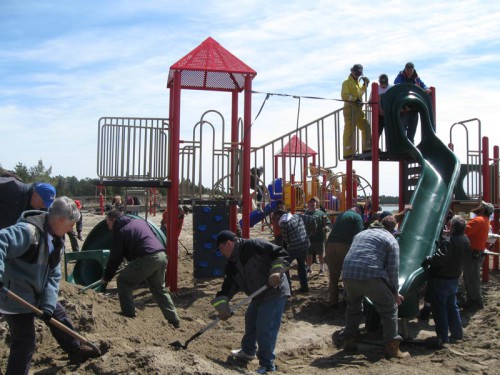Many French citizens and, presumably, many Greek citizens as well may well be wondering this week about the future of their countries’ economies and about the ongoing stability of the European Economic Union, especially those countries that have adopted the Euro as a common European currency.
Two-term French president Nicholas Sarkozy failed in his bid for a third term as his socialist opponent François Hollande was elected in Sunday’s runoff election.
Similarily, Greek president Karolos Papoulias lost power in an election the same day.
Both French and Greek economies are struggling (Greece far more than France), but as a common factor each incumbent president and their respective governments had been imposing austerity measures on their respective electorates by way of the recovery process.
Canada has begun this process as well, at both the federal and provincial levels, as we see the entry-age for receipt of Old Age Security will be raised to 67 from 65 between 2023 and 2029 and as the federal government promises, in a couple of years time, to link support to health care in individual provinces directly to the past year’s economic growth. (In this scenario, presumably, some provincial health authorities will see clawbacks from year-to-year).
In Quebec, where the provincial Liberal government has committed to raising student tuition for post-secondary education, the recent response has been, at times, a violent one and Premier Jean Charest, who hopes to win reelection for himself and his party, appears to be attempting to offer students (who will certainly want to vote in the next provincial election in Quebec) the reduction in some costs also related to their post-secondary education which would offset, to some extent, the tuition hike.
France’s president-elect Hollande campaigned on a platform of a much softer approach to fiscal austerity but early Monday morning, German Chancellor Angela Merkel (who is insisting on just such measures to save the Eurozone from collapse) indicated that she will not budge from the requirements of the Eurozone fiscal plan if Germany is to assist less financially stable economies.
Several Eurozone economies, together with the United States, have recently slid backwards into recession, posting negative GDP growth in two successive quarters.
It is clear that, internationally, economies are struggling to find their feet as manufacturing moves steadily away from western nations to be relocated to China and India.
Austerity in our part of the world, as in Europe, is clearly the way to go.
But just as former French President Sarkozy and Quebec’s Premier Charest learned recently, these changes do not come without pushback.
It’s a fair bet that the new socialist President Hollande’s approach will not be able to be materially different than was that of former President Sarkozy.
The German economy has also been buffeted but it remains the strongest in the Eurozone and so what Chancellor Merkel wants she will no doubt get from lesser economies.
At home, Premier Charest will raise student tuition fees. It may well also cost him the next election but such is the cost of prudent fiscal management in a democratic country.
What we must do as citizens of Ontario, of Canada, is to get our heads around the fact that there will be change and it will cost all of us a little bit. It will probably not be nearly as bad as we may anticipate, but we should take a hint from the political travails we are hearing about in France, Greece and even Ireland, where the government will hold a referendum on the Eurozone’s austerity program at month’s end.
Canada is in the enviable position of controlling vast amounts of natural resources that we out-source worldwide.
Our domestic austerity measures are not likely to be nearly as rigorous as those faced by European economies whose manufacturing sectors have relocated and which rely to a greater and greater extent on service industries like tourism.
A little belt tightening won’t hurt us as a nation and in fact, it will keep us in sympathy with the much more rigorous measures our European cousins are facing.



